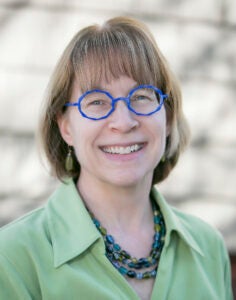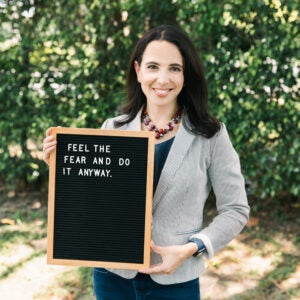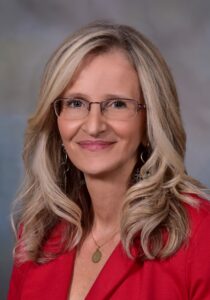About the March 17 Forum
Disordered eating is common and can lead to a variety of negative mental health outcomes. This panel brings together experts in disordered eating with backgrounds in public health, medicine, mental health treatment, and advocacy for groups of disordered eating. The panel will discuss their experiences working with individuals with disordered eating, the public health impact of disordered eating, as well as the impact of the COVID-19 pandemic on disordered eating. The event will conclude with a Q&A session with the attendees.
Watch the Forum
Speaker bios
 S. Bryn Austin, ScD, is an award-winning researcher, teacher, and mentor. She is Professor in Social and Behavioral Sciences at Harvard T.H. Chan School of Public Health, Professor of Pediatrics at Harvard Medical School and Boston Children’s Hospital. She directs the Strategic Training Initiative for the Prevention of Eating Disorders: A Public Health Incubator, based at the Harvard Chan School and Boston Children’s Hospital. Dr. Austin is Immediate Past President of the Eating Disorders Coalition and Academy for Eating Disorders. She is a social epidemiologist and behavioral scientist with a research focus on health inequities, especially those affecting socially marginalized adolescents, and she has received numerous grants funded by the U.S. National Institutes of Health and foundations to support her research. She leads two primary research programs: One focuses on environmental influences on eating disorders risk and public health approaches to primary and secondary prevention of eating disorders with an emphasis on policy translation research and advocacy. The second focuses on determinants of sexual orientation and gender identity disparities in a range of health domains, including disordered weight-related behaviors, substance use, bullying victimization, and other health risk indicators. A unifying goal of her academic career has been to advance innovations in transdisciplinary science applied to eating disorders prevention and the study of health inequities adversely affecting socially marginalized youth.
S. Bryn Austin, ScD, is an award-winning researcher, teacher, and mentor. She is Professor in Social and Behavioral Sciences at Harvard T.H. Chan School of Public Health, Professor of Pediatrics at Harvard Medical School and Boston Children’s Hospital. She directs the Strategic Training Initiative for the Prevention of Eating Disorders: A Public Health Incubator, based at the Harvard Chan School and Boston Children’s Hospital. Dr. Austin is Immediate Past President of the Eating Disorders Coalition and Academy for Eating Disorders. She is a social epidemiologist and behavioral scientist with a research focus on health inequities, especially those affecting socially marginalized adolescents, and she has received numerous grants funded by the U.S. National Institutes of Health and foundations to support her research. She leads two primary research programs: One focuses on environmental influences on eating disorders risk and public health approaches to primary and secondary prevention of eating disorders with an emphasis on policy translation research and advocacy. The second focuses on determinants of sexual orientation and gender identity disparities in a range of health domains, including disordered weight-related behaviors, substance use, bullying victimization, and other health risk indicators. A unifying goal of her academic career has been to advance innovations in transdisciplinary science applied to eating disorders prevention and the study of health inequities adversely affecting socially marginalized youth.
 Johanna Kandel (She/Her) is the founder and CEO of The Alliance for Eating Disorders Awareness and the author of Life Beyond Your Eating Disorder. She founded The Alliance after a long battle with eating disorders. Since October 2000, Johanna has brought information and awareness about eating disorders to hundreds of thousands of individuals nationally and internationally. As a passionate advocate for mental health and eating disorders, Johanna has spent a lot of time meeting with numerous members of Congress, and was part of the first-ever Eating Disorder Roundtable at the White House.
Johanna Kandel (She/Her) is the founder and CEO of The Alliance for Eating Disorders Awareness and the author of Life Beyond Your Eating Disorder. She founded The Alliance after a long battle with eating disorders. Since October 2000, Johanna has brought information and awareness about eating disorders to hundreds of thousands of individuals nationally and internationally. As a passionate advocate for mental health and eating disorders, Johanna has spent a lot of time meeting with numerous members of Congress, and was part of the first-ever Eating Disorder Roundtable at the White House.
Johanna is a proud member of the Interdepartmental Serious Mental Illness Coordinating Committee (ISMICC) Meeting under the Department of Health and Human Services and a member of the Board of Directors for the Eating Disorders Coalition. She has received many awards for her ongoing outreach and advocacy work, including the Jefferson Award for Public Service© and the Academy for Eating Disorders’ Meehan/Hartley Leadership Award for Public Service &/or Advocacy.
 Monika Ostroff, LICSW, CEDS-S, is a Certified Eating Disorders Specialist and Supervisor, nationally recognized for her 25+ years of experience and contributions to the field of eating disorders. She has directed several successful residential, partial hospital and intensive outpatient eating disorder programs in addition to having owned a thriving private practice. Monika is the co-author of Anorexia Nervosa: A Guide to Recovery and a contributing author to Self-Harm Behavior and Eating Disorders. She has presented at many national conferences, taught at the university level, and appeared on several radio and television broadcasts.
Monika Ostroff, LICSW, CEDS-S, is a Certified Eating Disorders Specialist and Supervisor, nationally recognized for her 25+ years of experience and contributions to the field of eating disorders. She has directed several successful residential, partial hospital and intensive outpatient eating disorder programs in addition to having owned a thriving private practice. Monika is the co-author of Anorexia Nervosa: A Guide to Recovery and a contributing author to Self-Harm Behavior and Eating Disorders. She has presented at many national conferences, taught at the university level, and appeared on several radio and television broadcasts.
 Lesley Williams, MD, a board certified family medicine physician and certified eating disorder specialist, is an advocate for diversity and inclusivity in healthcare. After years of working in the mental health field, she noted that many of the issues she was seeing in her adult and adolescent patients, were linked to negative messages they internalized since early childhood regarding their appearance. She discovered that it was difficult to combat these ingrained messages. She also observed her own young daughter starting to struggle with body image issues and feeling self-conscious about her size. Dr. Williams-Blackwell then decided to switch gears and focus her energy from eating disorder and mental health treatment to prevention. She determined that the best way to address these concerns was to become an advocate for positive body image and size diversity in young children. Her hope is that this approach will ultimately improve the physical and mental well-being of children as well as adults.
Lesley Williams, MD, a board certified family medicine physician and certified eating disorder specialist, is an advocate for diversity and inclusivity in healthcare. After years of working in the mental health field, she noted that many of the issues she was seeing in her adult and adolescent patients, were linked to negative messages they internalized since early childhood regarding their appearance. She discovered that it was difficult to combat these ingrained messages. She also observed her own young daughter starting to struggle with body image issues and feeling self-conscious about her size. Dr. Williams-Blackwell then decided to switch gears and focus her energy from eating disorder and mental health treatment to prevention. She determined that the best way to address these concerns was to become an advocate for positive body image and size diversity in young children. Her hope is that this approach will ultimately improve the physical and mental well-being of children as well as adults.




